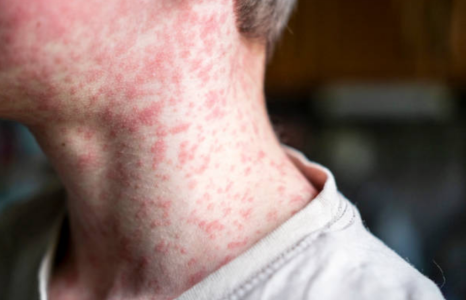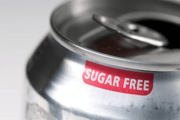Health officials issue measles warning after visits to public places
By
Gian T
- Replies 10
Aussies are being urged to stay vigilant after a new measles alert was issued, following the movements of an infectious patient who visited several busy locations across the city.
If you went around towns recently, it’s time to take note—especially if you’re in the over-60s crowd, or have grandkids who might be at risk.
NSW Health has sounded the alarm after a recently returned from Vietnam—a known measles hotspot—visited Sir Reuben cafe in Rozelle and the Concord Hospital Emergency Department while infectious.
Here are the key times and places to be aware of:
The good news is, there’s no ongoing risk at these venues, but anyone who was present during those windows should monitor their health closely.
What are the symptoms of measles?
Measles is a highly contagious viral illness that spreads through the air when an infected person coughs or sneezes. According to Dr Leena Gupta, Director of Public Health at Sydney Local Health District, the early symptoms can be easily mistaken for a common cold or flu. Here’s what to watch for:
It can take up to 18 days for symptoms to appear after exposure, so anyone who visited the affected locations should be vigilant until at least 18 July.
What should you do if you develop symptoms?
If you start to feel unwell and suspect you might have measles, don’t just turn up at your GP or the emergency department.
Instead, call ahead and let them know about your symptoms and possible exposure. This helps protect other patients and staff from potential infection.
Australia is experiencing its highest number of measles cases in six years, with outbreaks growing across the country.
International travel is a major factor, as measles remains common in many parts of the world.
The recent case in Sydney is a reminder that even a quick overseas trip can bring the virus back home.
Are you protected?
The best defence against measles is vaccination. Dr Gupta reminds us that anyone born after 1965 should have had two doses of the measles vaccine (commonly given as the MMR—measles, mumps, rubella—vaccine).
This is especially important if you’re planning to travel overseas, as outbreaks are occurring in several regions right now.
If you’re not sure about your vaccination status, it’s worth checking with your GP. The vaccine can even help prevent illness if given soon after exposure, so don’t delay if you think you might be at risk.
A quick refresher: Why is measles so serious?
While many people recover without complications, measles can be particularly dangerous for babies, older adults, and people with weakened immune systems.
Complications can include pneumonia, ear infections, and—in rare cases—brain inflammation (encephalitis).
That’s why public health authorities take every case seriously and act quickly to prevent further spread.
What can you do to protect yourself and your loved ones?
 Have you or someone you know ever had a close call with measles, or do you remember the days before the vaccine was common? Are you up to date with your vaccinations, or do you have questions about the process? Share your stories, tips, or concerns in the comments below.
Have you or someone you know ever had a close call with measles, or do you remember the days before the vaccine was common? Are you up to date with your vaccinations, or do you have questions about the process? Share your stories, tips, or concerns in the comments below.
Read more: Urgent health alert exposes seven sites with highly contagious disease—are you at risk?
If you went around towns recently, it’s time to take note—especially if you’re in the over-60s crowd, or have grandkids who might be at risk.
NSW Health has sounded the alarm after a recently returned from Vietnam—a known measles hotspot—visited Sir Reuben cafe in Rozelle and the Concord Hospital Emergency Department while infectious.
Here are the key times and places to be aware of:
- Sir Reuben Cafe, Rozelle: Sunday, June 22, between 12 pm and 1 pm
- Concord Hospital Emergency Department: Saturday, June 28, between 10:35 pm and 3:10 am
The good news is, there’s no ongoing risk at these venues, but anyone who was present during those windows should monitor their health closely.
What are the symptoms of measles?
Measles is a highly contagious viral illness that spreads through the air when an infected person coughs or sneezes. According to Dr Leena Gupta, Director of Public Health at Sydney Local Health District, the early symptoms can be easily mistaken for a common cold or flu. Here’s what to watch for:
- Fever- Runny nose
- Sore, red eyes
- Cough
It can take up to 18 days for symptoms to appear after exposure, so anyone who visited the affected locations should be vigilant until at least 18 July.
What should you do if you develop symptoms?
If you start to feel unwell and suspect you might have measles, don’t just turn up at your GP or the emergency department.
Instead, call ahead and let them know about your symptoms and possible exposure. This helps protect other patients and staff from potential infection.
Why is this happening now?
Australia is experiencing its highest number of measles cases in six years, with outbreaks growing across the country.
International travel is a major factor, as measles remains common in many parts of the world.
The recent case in Sydney is a reminder that even a quick overseas trip can bring the virus back home.
Are you protected?
The best defence against measles is vaccination. Dr Gupta reminds us that anyone born after 1965 should have had two doses of the measles vaccine (commonly given as the MMR—measles, mumps, rubella—vaccine).
This is especially important if you’re planning to travel overseas, as outbreaks are occurring in several regions right now.
If you’re not sure about your vaccination status, it’s worth checking with your GP. The vaccine can even help prevent illness if given soon after exposure, so don’t delay if you think you might be at risk.
While many people recover without complications, measles can be particularly dangerous for babies, older adults, and people with weakened immune systems.
Complications can include pneumonia, ear infections, and—in rare cases—brain inflammation (encephalitis).
That’s why public health authorities take every case seriously and act quickly to prevent further spread.
What can you do to protect yourself and your loved ones?
- Check your vaccination status: If you’re unsure, ask your GP. It’s never too late to get protected.
- Be alert for symptoms: Especially if you were at the affected locations or have been overseas recently.
- Call ahead if you’re unwell: Don’t risk spreading the virus in waiting rooms.
- Encourage family and friends to get vaccinated: Especially grandkids and anyone planning to travel.
Key Takeaways
- A health alert has been issued in Sydney after an infectious measles patient, recently returned from Vietnam, visited Sir Reuben cafe in Rozelle and the Concord Hospital Emergency Department.
- NSW Health advises anyone who visited the cafe between 12 pm and 1 pm on Sunday, 22 June, or the Concord Hospital Emergency Department between 10:35 pm and 3:10 am on Saturday, 28 June, to watch for measles symptoms up until 18 July.
- Authorities urge people to check they are up to date with their measles vaccinations, especially anyone born after 1965 or planning overseas travel, as outbreaks are increasing globally.
- Anyone who develops measles symptoms—such as fever, runny nose, sore eyes, cough, and later a red, blotchy rash—should call their GP or emergency department before attending, to help prevent further spread.
Read more: Urgent health alert exposes seven sites with highly contagious disease—are you at risk?








